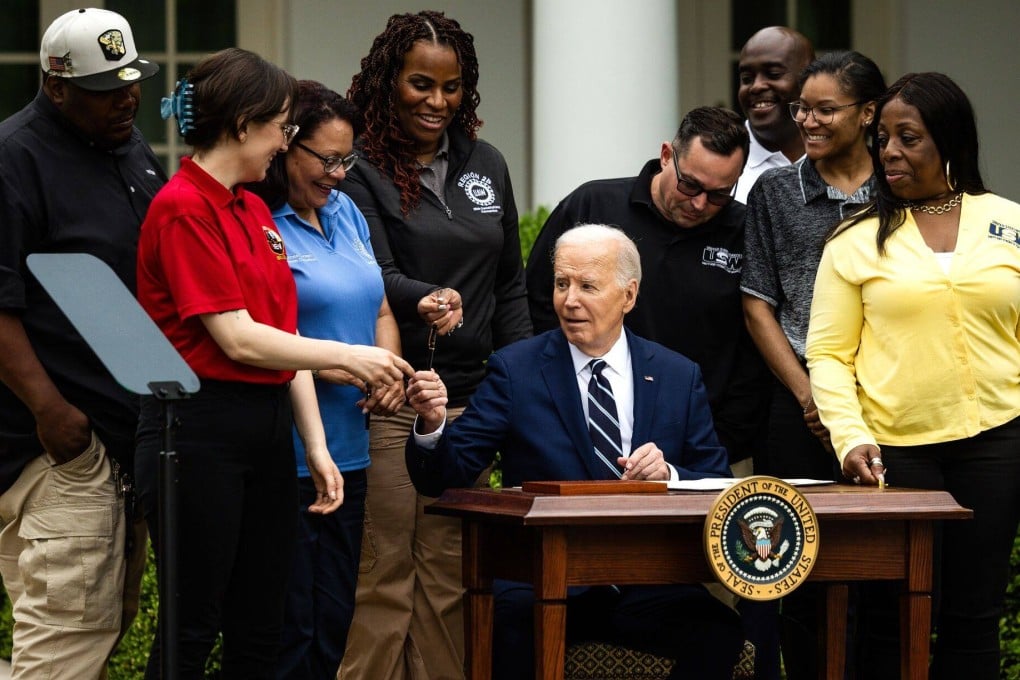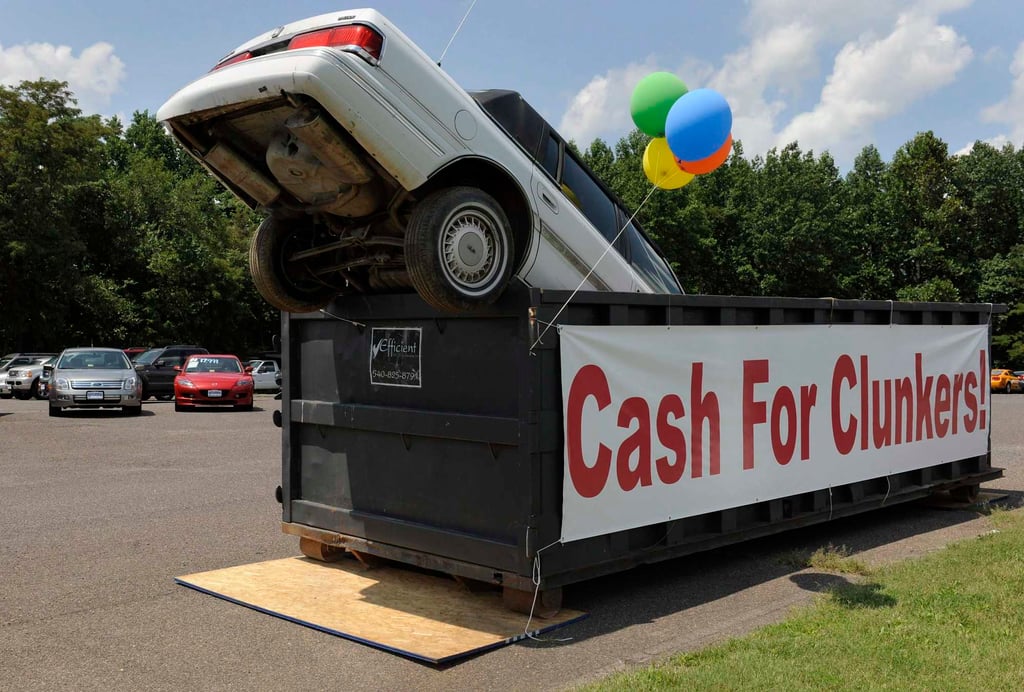Advertisement
Outside In | The real reason for the US’ new anti-China tariffs (and it isn’t unfair trade)
- In enacting yet another round of tariffs on Chinese exports, the Biden administration has its sights set firmly on its fortunes in November’s election
- The US president has to shore up Democrats’ support in rust belt states and clearly thinks American firms and consumers are ready to pay the price tariffs will bring
Reading Time:4 minutes
Why you can trust SCMP
14

Forgive my crusty old cynicism, but I find it unlikely that US President Joe Biden’s long list of new tariffs on China’s exports has anything to do with dumping, overcapacity or unfair trade practices.
Advertisement
Rather, in the short term, it has everything to do with November’s presidential election, as well as the unique standing of the US auto industry in the country’s politics and economic soul. In the long term, it has everything to do with recognising shifts in the global economy which from a US perspective – and from that of Europe – point in an unfavourable direction.
Given the political and economic demonisation of China in US politics, which was theatrically demonstrated by Donald Trump during his presidency, Biden and the Democratic Party probably feel they have no option but to exploit the tariff announcement to outflank Trump and the Republican Party. They cannot afford to give their opponents any space to denounce them as soft on China.
Democrats also cannot risk alienating their voters in rust belt states such as Pennsylvania, Michigan and Wisconsin, where efforts to revive US manufacturing are viscerally felt. As the White House said in a fact sheet about the new tariffs released on May 14, Biden will “always have the back of American workers”.
This is especially true of US autoworkers. Remember the lengths to which president Barack Obama went in the wake of the 2007-08 financial crisis, when US auto sales crashed from an annual average of 17 million a year to just over 10 million? Remember the Car Allowance Rebate System, also known as “cash for clunkers”, which was intended to jump-start a recovery?

According to the Alliance for Automotive Innovation, the US motor industry supports 9.7 million jobs and accounts for paycheques amounting to US$702 billion. Each auto job is believed to create more than 10 other positions. It drives more than US$1 trillion into the economy and underpins tax revenue amounting to almost US$280 billion.

Advertisement
